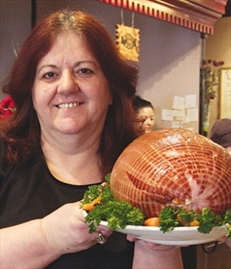Spring means two things in my household: tax time and
top-to-bottom spring cleaning.
In my family I’m the “tax guy”; since I have the software and
it does up to 20 returns, I end up doing everyone’s taxes. But this year it’s
been a bit harder to meet the April 30 deadline; for over 3 weeks I’ve had a
bad cold sapping my energy.
Luckily, my friend Elizabeth May, Green Party MP and leader,
has managed to get me a filing extension to May 5 – and the good news is, it
applies to all Canadians! So if the looming tax deadline was stressing you, now
you’ve got a bit more breathing space. More on how this happened in next week’s
column.
But despite 3 family members having versions of this cold,
spring cleaning continues. This year, we’re tackling the dozens of old VHS
tapes gathering dust on the bottom shelves. Years ago I had a VCR-DVD combo
that could copy them over, but with everything else going on, never got around
to doing it, and now that machine has gone the way of e-scrap. Yet there are
still important memories to transfer: ultrasounds, family TV appearances, the
full local broadcast of Live 8; things that need to be saved before the tapes
are ditched forever.
 |
| These are not actually my tapes. |
And that’s the tricky part: what to do with discarded VHS
tapes? They can’t go in the blue box, yet we don’t want them clogging up
landfill. And it’s not a trivial issue; more than 2 billion VHS tapes lurk in
Ontario, a veritable mountain we can either bury or recycle.
That’s where Project Get Reel comes in. A Toronto start-up,
this social enterprise aims to solve several problems at once, by hiring people
who face barriers to employment to disassemble and recycle VHS tapes. There are
a variety of metals and plastics inside each tape, each of which goes to a
different recycling stream, but first each tape must be opened by removing, by
hand, 5 metal screws. This kind of simple, hands-on work is an ideal job
gateway for people whose physical or mental issues are career stumbling blocks,
or who have personal situations (like needing child care, or being a new
immigrant) that get in the way of most entry-level jobs.
There is still time, but just a few days, for you to
personally help launch this project by visiting their crowdfunding site at
indiegogo.com/project/project-get-reel, but only until Sunday May 3. With this
funding they will get things ramped up by July. And to help, a supporter has
just pledged to match all donations, so your money will count double!
So hold onto your VHS tapes just a little longer – don’t
throw them out, recycling is just around the corner. Visit ProjectGetReel.com
and sign up to receive information on how you can drop off your tapes. In the
meantime, start transferring any important memories over to digital media so
you can park it in “the cloud” where it can never get lost, so they say. There
are many tape transfer services in town, if you just have a few, or if you have
a whole library to convert, you can get the right software and connectors to
hook your VCR to your own computer and convert them yourself. Let’s clear out
those tapes, and recycle them!
Published as my Root Issues column in the Barrie Examiner as "Now's the time to clear out those VHS tapes"
Erich Jacoby-Hawkins is a director of
Living Green and the Robert Schalkenbach Foundation.




